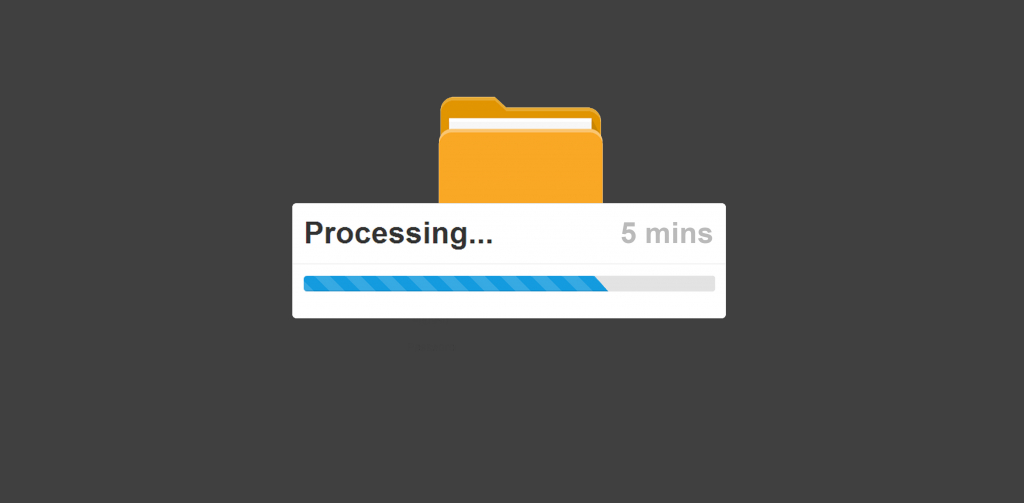
In a series of articles, ipushpull explores how innovative new software products are transforming the landscape of enterprise workflow, offering cost-effective, fast-to-market solutions for big efficiency and security improvements. This is part 1 in a series of articles about alternatives to email attachments, chat attachments and file-sharing services and instead looking at new platforms that allow real-time interoperability, automation and – importantly – empower workflow efficiency.
Let’s start with the root cause of many a workflow efficiency problem, the humble file. Whether it’s a PDF, Excel spreadsheet, PowerPoint or even a CSV, files are without a doubt really useful; particularly in a world still dominated by the powerful desktop applications we know and love which were designed to store information exclusively using files.
So why is file sharing a problem?
Perhaps because of their very success, files are almost routinely used in situations where they are not a sensible tool of choice – too often damaging, and sometimes disastrous, effect. We’ve all heard, for example, of inadequate version control or access control of spreadsheet files leading to huge trading losses in securities trading or discrepancies in a company annual report. But away from these headline-grabbing cases, in aggregate far greater damage to organisations is done by the more mundane use of files day-in-day-out as the dominant method of sharing information both internally or externally, whether as email attachments or on file share services.
The perfect storm – unsecured file sharing and copy & paste errors
File-based data sharing and workflows are inherently inefficient and introduce unnecessary risks. Because files were not built with automation in mind, endless frustrated employee time is needlessly wasted manually copying and pasting and merging between files. IDC estimates that there are 5.5 million advanced spreadsheet users in Europe (and 30 million globally) who, on average, spend 28 hours a week working on spreadsheets with each user spending up to 9 hours a week repeating effort when data sources are updated. In total, this adds up to €55 billion per year in wasted time. With such inefficient workflow, any real-time aspirations are usually just that, with even the simplest automation a challenge and often involving highly-bespoke End Used Developed (EUD) applications. And, in addition to the clear operational risks from spreadsheets, there is a high potential for data loss and access control breaches with file sharing in general, combined with an ever-present threat of file-hosted viruses, trojans and the like.
All-in-all a potential perfect storm of under-performance across the business has a major impact on the top and bottom line, as well as adding significant, and frankly unnecessary, security risks. All around potentially very bad for the company’s health, yet regularly overlooked or ignored.
So, what’s the solution? No files.
Businesses that have confronted this situation have gained a huge competitive advantage through improved automation and efficiency, but it has come at a cost. Until now, only those prepared to invest heavily in building in-house platforms or buying expensive industry-standard super secure ‘licensed’ platforms have benefited. And where, until recently, the main driver was the improved efficiency ‘carrot’, more recently we’ve also seen law-makers focusing increasingly on data protection, privacy and (in financial markets) transparency, all combining to form quite a hefty ‘stick’ for organisations to get their act together. While there are plenty of products which aim to contain the risks of files without addressing the underlying causes, a more exciting development has been that of cloud-based workflow and collaboration platforms. Yet the common oversight among these is that most aim to replace current applications like desktop spreadsheets rather than embracing them as part of a new, secure, real-time ecosystem.
The good news is that, behind the scenes, a new generation of software platform providers have been working hard to overcome all of these problems and, because of the advantages of cloud delivery, at a price that’s well within the reach of not just top-tier enterprises. ipushpull is at the forefront of the innovative and exciting area of real-time secure data sharing. Among other things, ipushpull is replacing file sharing with flexible, yet secure and compliant, ways of connecting and sharing data in real-time across powerful desktop applications (Excel) we know and love, cloud-based services (Microsoft Teams, Symphony, Slack), databases and even legacy systems. It’s called Real-time Interoperability or RTI.
Our next blog will be exploring how this is going to change our everyday working lives.
To learn more about how ipushpull is being used to automate and streamline enterprise data sharing and workflows please go to www.ipushpull.com



.png)
.png)

